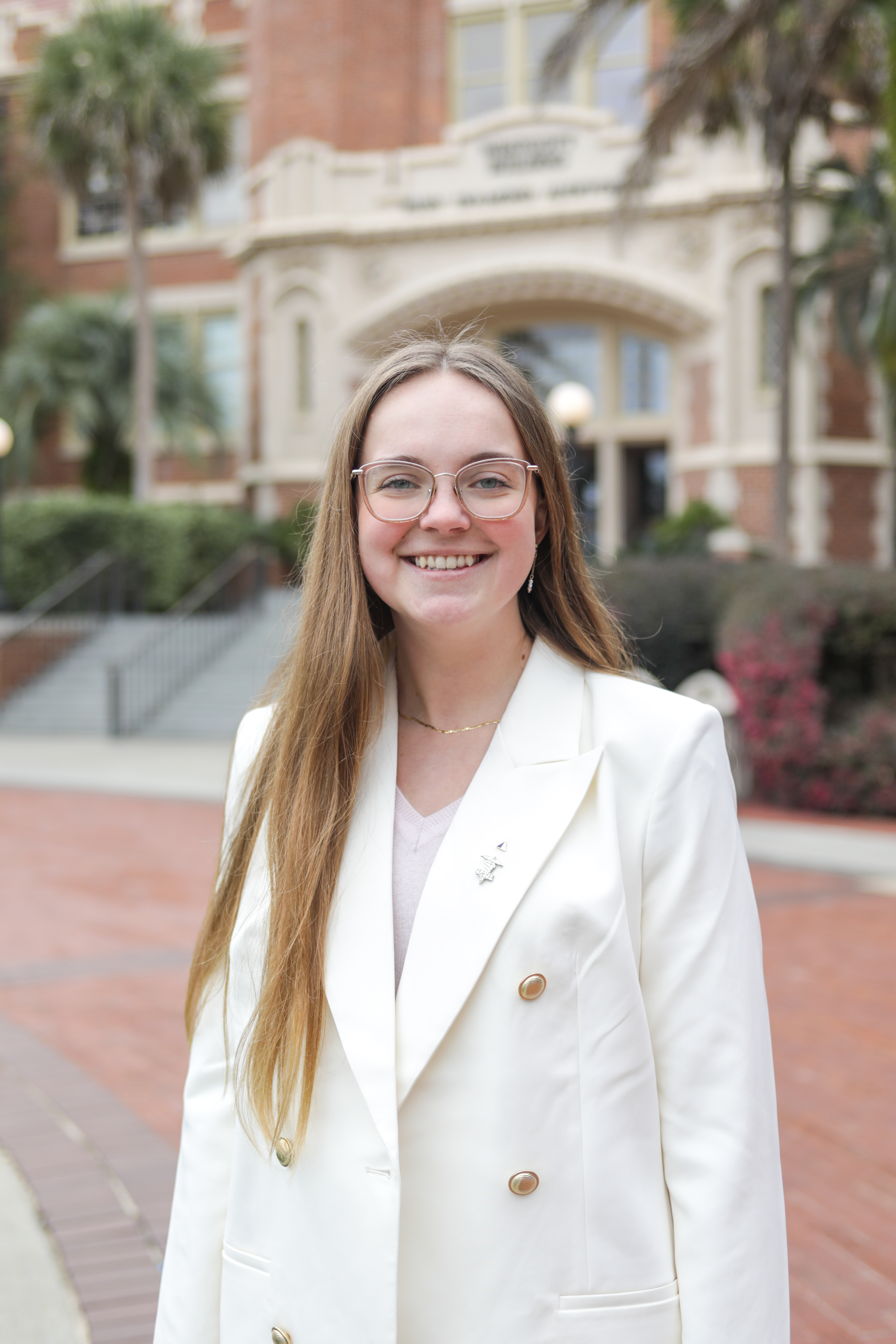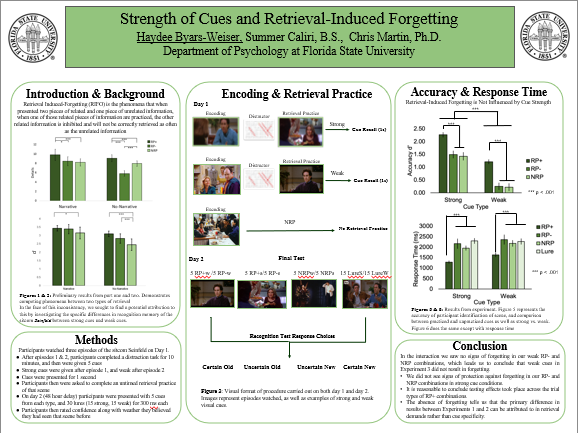Research Symposium
24th annual Undergraduate Research Symposium, April 3, 2024
Haydee Byars-Weiser Poster Session 4: 2:45 pm - 3:45 pm /106

BIO
Hi! My name is Haydee, I am a behavioral neuroscience major, and a premed student, graduating this spring. I have been in the Martin Memory Lab as a research assistant for almost two years. My research interests include genetic disorders, and their influence on behavior in pediatric patients, particularly Autism Spectrum Disorder. I plan to pursue a MD/PhD program after taking a gap year following my graduation.
Strength of Cues and Retrieval-Induced Forgetting
Authors: Haydee Byars-Weiser, Chris MartinStudent Major: Behavioral Neuroscience
Mentor: Chris Martin
Mentor's Department: Department of Psychology Mentor's College: College of Arts and Sciences Co-Presenters:
Abstract
Studies of human memory have shown that retrieval practice increases the likelihood of later recalling practiced information. This has been called the test effect. However, retrieval practice also affects the likelihood of later recalling unpracticed information. In some contexts, it can cause forgetting (retrieval-induced forgetting; RIFO), which is thought to be driven by inhibition of unpracticed items during retrieval practice. We have previously shown that the presence of narrative structure in naturalistic stimuli protects against RIFO on recall tasks with weak retrieval cues but not on recognition tasks with strong retrieval cues. Here, we investigated this inconsistency, asking whether it reflected differences in the strength of the cues (strong vs. weak) or differences in retrieval demands (recall vs. recognition). To this end, we manipulated cue strength and held retrieval demands constant in a classic RIFO paradigm, i.e., (i) encode naturalistic stimuli without a narrative, (ii) complete retrieval practice for a subset of the previously encoded information, and (iii) complete a recognition memory test with either strong or weak cues. Strong cues were unambiguous still frames from the previously encoded stimuli, whereas weak cues were ambiguous still frames. If the differences in our previous studies can be attributed to cue strength, then strong and weak cues should differentially affect performance for unpracticed information. If, however, the differences reflected retrieval demands, performance should be comparable across strong and weak cues. Our results supported the latter interpretation as unpracticed information was recalled with equal probability following retrieval practice with strong and weak cues.
Keywords: memory psychology behavior Seinfeld

